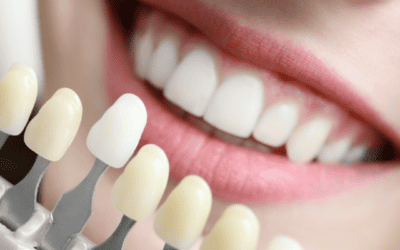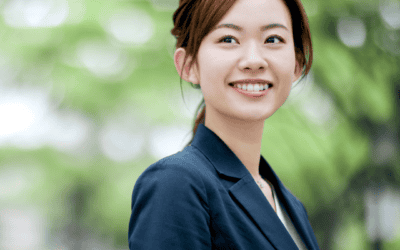
Here at Dentistry On George, we can help you with your snoring and sleep apnoea. This might seem an odd thing for a dentist, but in fact, following further training and in consultation with a sleep physician, we can do this by way of oral appliances. These oral appliances are custom made and can be finely adjusted, designed to slowly and gently hold the lower jaw forward and therefore the tongue with it. This can open the airway to reduce snoring and help obstructive sleep apnoea.
What is Obstructive Sleep Apnoea?

Obstructive Sleep Apnoea (OSA) is a serious disease with serious complications. It is linked to other diseases such as diabetes and heart conditions. In fact, one study showed that the prevalence of obstructive sleep apnoea in those with atrial fibrillation was between 49% – 63% (1). Left undiagnosed, this condition can lead to less successful treatment and stroke in those with atrial fibrillation.
OSA occurs when there is an obstruction of the upper airway during sleep. This can be due the tissues at the back of the throat relaxing and flopping back into the airway. When this happens, the oxygen saturation of the blood dips, and the brain stimulates the person to breathe again by partially wakening them up. The person does not necessarily remember these frequent awakenings, but it can be enough to lead them to waking up unrefreshed in the morning.
According to the Australian Dental Association, as snoring is so strongly linked to sleep apnoea (the most common symptom), those with chronic snoring should always have a sleep study carried out. So what is a sleep study and who does it?
Who is a Sleep Physician?

A sleep physician is a medical doctor who has done further training to become a specialist in the areas of sleep disorders. They can diagnose and treat sleep disorders, including sleep apnoea.
They will interpret sleep studies, looking for things like frequency and loudness of snoring, sleep position, duration and quality of sleep, and signs of apnoeas (absence of breath) and hypopnoeas (reduced breath). Following this interpretation, they can diagnose a snoring problem, with or without obstructive sleep apnoea and then give their recommendations, which may include an oral appliance made by a suitably trained dentist. That’s where we come in.
The type of appliance we recommend and how much it is adjusted will depend on the results of this sleep study along with things such as the position of the teeth and jaws.
What is a sleep study?
Not all sleep studies are created equal. There are in fact many different types of sleep studies, which are designed for different things. So let’s have a look at what’s on offer.
Snoring Apps

These can be quite a bit of fun but are not scientifically proven and are not an actual sleep study. However, they can be useful in getting an objective measurement of snoring. Kathryn and her family recently tried out the Snore Lab app, where you can listen back to the night’s snoring events! However, it does pick up other sounds and may interpret them as snoring, so it’s not always accurate.
Home Sleep Study
At Dentistry on George, we find great benefit in referring our patients for a home sleep study. We use something called the WatchPat One, which is really a screening tool, used to rule in sleep apnoea. However, it can’t always rule it out.

The reason we love this system is its simplicity. If we have a patient who is suffering with snoring (or their partner is!) and we want to further assess if there is sleep apnoea, the beauty of this test is that it gets delivered straight to the patient’s door. They can complete the study in the comfort of their own bed and in the morning the data is downloaded to an app and sent straight to the sleep physician. The doctor will then forward us the report and recommendation.
This kind of test will pick up obstructive sleep apnoea and it does this by measuring things like oxygen saturation, heart rate and the tone of the blood vessels, snoring levels, and body position. However, if certain things are picked up on this test that warrant further investigation, the sleep physician may require a telehealth consult and possibly a different type of test.
Lab-Based Sleep Study

There are different levels of these, but they all involve sleeping in a hospital or sleep lab. Some of these tests involve throughout the night monitoring, where the person having the sleep study is watched throughout the night.
These studies are usually polysomnography, which is where the brain waves produced during sleep are measured. Lab sleep studies an also measure things such as eye and limb movements.
These would be used for other sleep disorders such as restless leg syndrome, narcolepsy, and sleep behaviour disorders. Obviously, with complex sleep disorders such as these, our dental input will be of no help. These disorders are treated under the care of the sleep physicians.
Post-Treatment Sleep Study
For those patients with diagnosed sleep apnoea, the sleep physician may ask for a further study to be carried out while the patient is wearing their CPAP machine or oral appliance. This is done to test the effectiveness of the treatment option.
Many people, after being fitted with an oral appliance, notice a reduction in their symptoms. However, the post-treatment sleep study gives objective measurements to show if there has been an improvement in the severity of sleep apnoea.
Think you might need a sleep study?
If you or your partner are snoring often and think you’d like to investigate the possibility of an oral appliance to help, please call our friendly team and book in for a sleep consultation with Dr Kathryn. Other symptoms of sleep apnoea are waking unrefreshed and excessive daytime sleepiness. Again, if this sounds like you or someone you know, we’d be more than happy to help. The improvement in quality of life of some our patients following the referral for a sleep study and the provision of these simple devices is amazing.
References
- Tauman R, Berall M, Berry R, Etzioni T, Shrater N, Hwang D, Marai I, Manthena P, Rama A, Spiegel R, Penzel T, Koren Morag N, Pillar G. Watch-PAT is Useful in the Diagnosis of Sleep Apnea in Patients with Atrial Fibrillation. Nat Sci Sleep. 2020 Dec 3;12:1115-1121. doi: 10.2147/NSS.S278752. PMID: 33299372; PMCID: PMC7721305.



